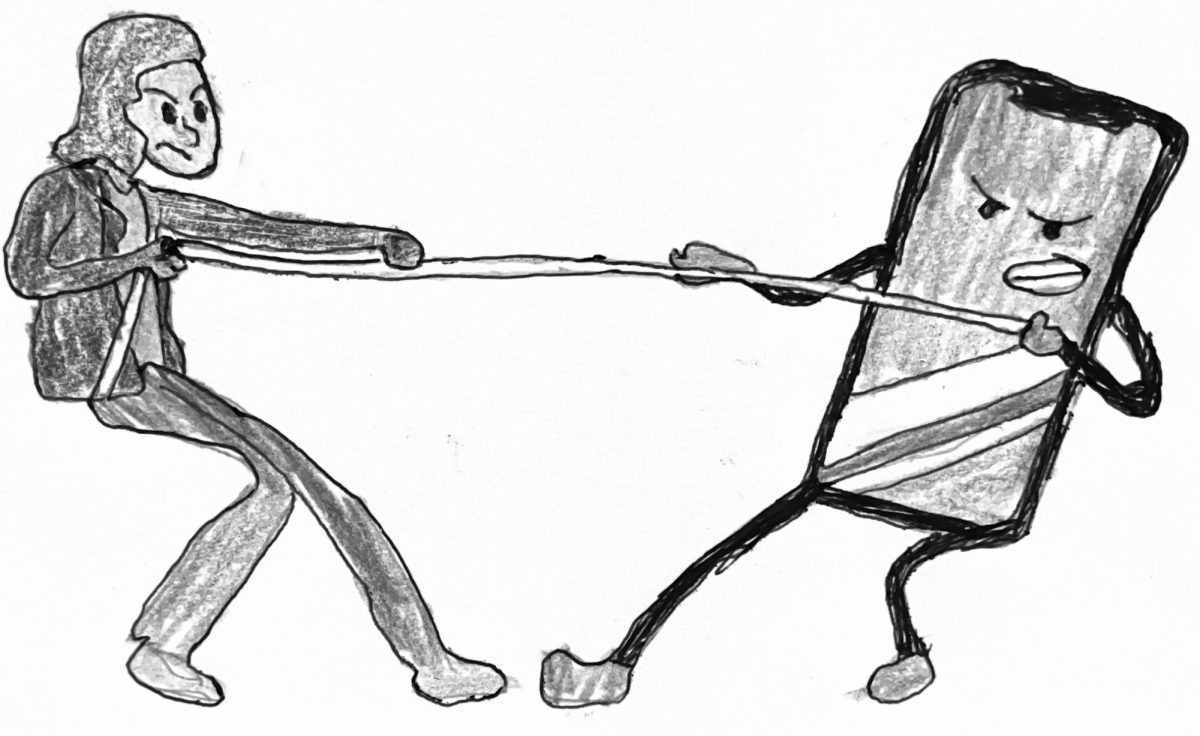Chill guy. Six Seven. Boat aura farming kid. All of these memes are massive. Absolutely massive. And you know what else is massive? It is not the low taper fade, but the average daily screen time on our phones. And do you know what is causing us to be glued to our screens in an addictive manner? Two words. Maybe take like six or seven seconds to figure it out. Done? Okay, I will tell you. Social media.
For most people, social media has taken over many aspects of their lives. After all, it is easy to get lost in the infinite “doom scroll” of TikTok or Instagram. Spending time on phones can warp perspectives and lead people to think that posting videos and texting people should be their whole life. Now, there is even a phobia that deals with the obsessive use of smartphones. It even has a very scientific name. Nomophobia. Specifically, nomophobia causes people to feel anxious or disorientated without a phone in their hands. Although this is a very extreme cause of phone addiction, some people are diagnosed with this phobia. The average screen time for a teen in America is six to nine hours. That is one-third of the day wasted on being glued to your screen. I spoke with Jack Morimoto, a fellow friend, and a sort-of phone addict.
I asked Morimoto some questions about phone addiction and how phone addiction has personally affected his life either negatively or positively. For him, it was mostly negative, except for the fact that he was able to communicate with friends more easily. For example, this interview was done on the phone, which is one of the things that a phone helps with. It benefits and complements our relationships, whether it is staying in touch over the summer or keeping a long-distance relationship. But what might be a blessing can also turn into a curse very quickly.
“Phone addiction or excessive phone use reduces attention span,” Morimoto said. “Social media exposes you to things like depression.” This has actually been confirmed by various sources, including the New York Times and the Washington Post.
“Researchers found children with highly addictive use of phones, video games or social media were two to three times as likely to have thoughts of suicide or to harm themselves,” The New York Times said. The Washington Post, similarly, stated that “Cellphones, video games and social media can be very addictive for children and could lead to mental health problems for the most addicted young people.”
Morimoto also mentioned a few other things about social media and phone addiction, including that “Phones make you sit inside all day, while it is key for child development to be outside playing with other people of their age.” But what touched me the most is when Morimoto said that, “Phones make us less present in a setting where we need to be present. An example of this would be at dinner. Instead of having a conversation with our parents, our thoughts are too caught up in other things, like text messages, social media, and videogames.”
This is the sad truth of phone addiction and excessive phone use. While Morimoto’s average daily screen time is only two hours, which is far below the national average, it still affects his life massively, as scientists recommend one to two hours of screen time per day, according to ReidHealth.org. This goes to show that our screen time, even if it is not as much as the national average, can still affect our lives negatively.










